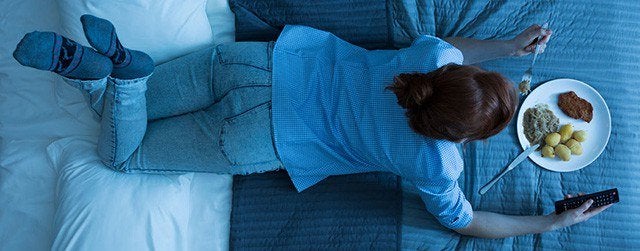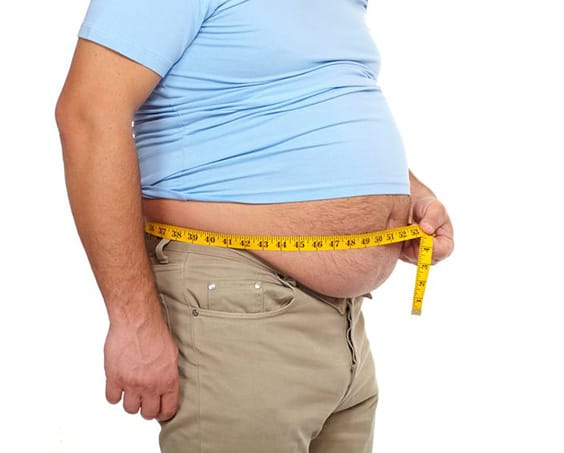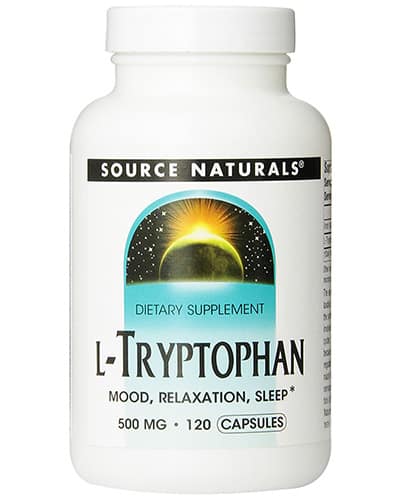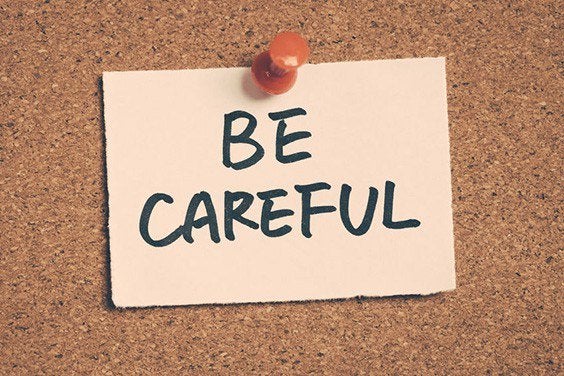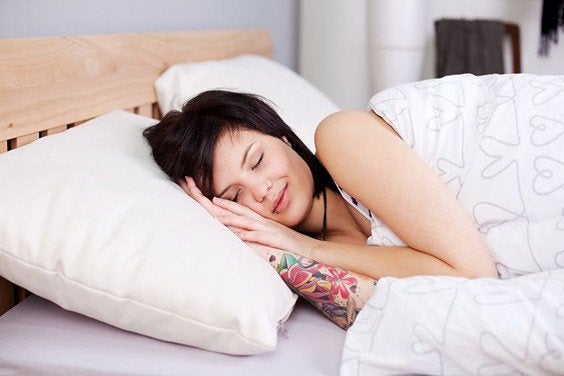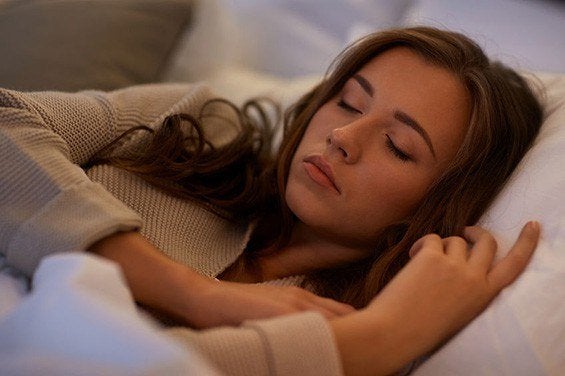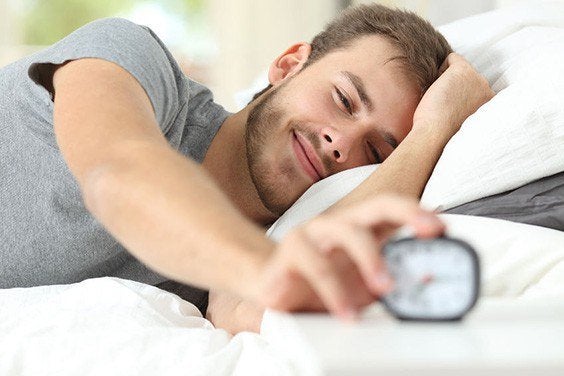“Early to bed, early to rise, makes a man healthy, wealthy, and wise.”
This adage may be old, but there is some truth to it. Your sleep cycle can have a major influence on your health and, perhaps surprisingly, on your weight. Sleep and weight loss are interconnected and, if you find yourself cutting back on sleep while cutting back on calories, you may not see the successes you want.
Why do we lose weight when we sleep? There are a number of reasons, some common sense and some deeply rooted in science. Either way, if you want to lose weight, you’re going to need to spend some time with your head on a pillow.
How It Works
How does sleep affect weight? It’s probably easier to look at how not sleeping affects weight. If you aren’t on the right sort of schedule, you can very quickly find yourself packing on the pounds.
Fighting a Lack of Sleep
When you’re tired, you tend to take certain steps to keep from feeling that way. In this regard, lack of sleep and weight gain go hand in hand. Think about how you felt the last time you didn’t get enough sleep. What did you do? You probably hit up Starbucks or slammed down an energy drink.
These items contain incredibly large amounts of sugar. And not just any sugar, refined sugar. This stuff is quickly absorbed into your system and, if you don’t burn it quickly, turns straight into fat. You may get a good boost of energy, but you’re also getting a mega boost of calories which likely won’t be processed in time.
Feeling Tired
Sometimes you may just have low energy because you’re not sleeping enough, either because you’re too busy or whatever. I’ve been there, I know exactly how it is. You get out of work late, pick up some fast food on the drive home, eat it and then go to bed.
In doing this, you’re skipping an opportunity for some exercise because you’re too tired and you’re ingesting an exorbitantly large amount of calories since that’s pretty typical for fast food. Sure, it tastes good, but you’ll be regretting it if this is a common event for you.
With more than a third of Americans not getting enough sleep, this is a real issue for a large part of the country. Taking in all those calories and climbing into bed isn’t going to help people burn them off.
Sleep and Your Brain
You might make some bad choices when tired because you simply don’t feel you have enough time. Some studies show, however, that part of the reason you may choose certain items is caused by your brain being tired.
A study published in the American Journal of Clinical Nutrition found some very interesting correlations. Notably, people who didn’t get enough sleep were more prone to late-night snacking. You might think this is because you’re awake longer, so you have more time to eat, but there are other factors as well.
Those same people were also prone to aim for high-carb snacks. Perhaps this is the body’s way of seeking energy when it is tired. A study at the University of Chicago showed similar results, with people not getting eight hours of sleep reaching for snacks with double the fat of those who got normal levels of sleep.
Yet another study also found a connection between lack of sleep and portion size. A review of more than a dozen studies showed people who aren’t getting enough sleep eat too much and go for foods high in carbohydrates and fat. When considering this, it’s easy to see how a lack of sleep can cause obesity.
A Chemical Imbalance
When it comes to weight loss, there are two hormones responsible for what’s going on in your brain and your gut. Let’s see how leptin and ghrelin and sleep go hand in hand.
Ghrelin is the hormone your body produces to make you feel hungry. There are some medications which can reduce this effect and two of the bariatric weight-loss surgery procedures remove the portion of the stomach which produces the hormone.
Leptin lets you know when you’re full. If you’re eating and suddenly feel the need to stop, that’s leptin doing its thing.
Together, these hormones regulate what you take into your body. They are generated in part based on your sleep, however. If you’re not sleeping right, your body creates more ghrelin and less leptin, leading you to be more hungry and to eat more.
Oh, and one last little thing. Not sleeping causes your body to produce more cortisol, as well, which tells your body to store more fat. What does all of this lead to? Extra poundage.
Sleep and Metabolism
If you consider the effects it has on your metabolism, it’s safe to say sleeping helps you lose weight. Heck, you can say that just be looking at everything we’ve already gone over. This, perhaps, is the most direct reason, however.
According to researchers at the University of Chicago, not getting enough sleep makes you feel “metabolically groggy.” Not getting enough sleep is directly related to your body’s ability to process insulin. If you’ve got less insulin, your body is going to end up storing more fat.
Insulin breaks down sugars and starches into energy, and without it, the fats and such in your bloodstream remain there, not broken down. Fat on fat on fat is just a recipe for gaining loads of weight.
Research shows that people on diets who cut back on their sleep had their weight loss drop by 55 percent. That means they were losing less than half the fat they were while getting enough sleep. If that’s not a reason to hit the hay, I don’t know what is. When looking at all of these facts, one can say, to some extent, sleep burns fat.
How to Fight It
So, the simple resolution is “get more sleep.” But, as anyone who leads a busy life, which is pretty much everyone in the United States of America, can attest, this is far easier said than done. There are some tips and trick, however, you can use to make sure the sleep you are getting is more substantial.
It’s a Kind of Magic
You know that sleepy feeling you get on Thanksgiving after eating tons of turkey? Well, most people blame it on tryptophan, but it’s really more of a carb coma. However, tryptophan does have some sleep-inducing effects.
Tryptophan is found in all kinds of poultry. Oddly, chicken actually has more of it than turkey! The way tryptophan has an effect on your sleep is by helping the body produce serotonin. Serotonin then works to make melatonin with guides you sleeping and waking cycles.
You may have heard of taking melatonin pills for better sleep, and that’s not a terrible idea. Melatonin and, by association, tryptophan can help you more quickly get into a deep sleep. If you’re not getting enough sleep, falling into a deep sleep faster is an ideal situation.
However, it should be noted that for the food-based tryptophan to work for you, you need to consume it with some carbs. So a piece of chicken and right about 30 grams of some sort of carbohydrate will help you get your sleep on quite well.
You are What You Eat
Serotonin becomes melatonin while you sleep, which helps you sleep better, right? It has been suggested that you can eat your carbs any time during the day, so loading up on them around lunch is better than doing so at dinner.
Getting in your whole grains in the middle of the day gives your time to process them and turn them into energy, while still being able to provide that precious serotonin your body needs. Once you finally crash for the day, your body starts turning the stuff into melatonin.
In this way, you’re not stuck with unburned carbs in your system and you’re still potentially getting a better night’s rest. Sounds like a win-win situation, to me.
Besides some of the obvious items, there are a few specific things you’ll want to avoid. Eating a heavy meal in general isn’t smart, but it can also bring the added issue of heartburn. The same goes for alcohol and spicy foods.
Caffeine is an obvious issue, so you should avoid coffee, soda and chocolate before bed. The stuff can stay in your system for anywhere from five to six hours, so be sure to keep that in mind when you are consuming these delicious things.
You are What You Drink
Sure, tea has caffeine in it, but certain kinds of teas are a great way to help you relax at the end of your day and get you into a better position to fall asleep quickly. Making yourself a warm glass of tea can be a relaxing experience.
Certain teas, such as chamomile, peppermint, lavender and valerian, can be great flavors to help you reach higher levels of relaxation. Additionally, making a routine of this can put you in a better sleeping state overall.
This is a tip for later on, to some extent, but some of it works here, as well. If, every night, you have a cup of hot tea before bed, your body will start to realize it’s time to wind down every time you go for that cup of tea. Training your body is an important step to falling asleep quickly.
The Bedtime Snack
For the most part, avoid eating right before bed. Without the time to process, eating the wrong thing isn’t going to do you any good. If you do need to eat a snack before bedtime, aim for something high in protein, like a protein shake.
Research done at Florida State University showed an evening snack with 30 grams of protein resulted in a higher resting metabolic rate in men the next morning, as compared with having no snack before bad. Additionally, protein burns more calories in digestion than other materials, so the digestion you experience while sleeping will have more of an effect.
Keep it Chill
Sleeping in a cooler environment can actually help you lose weight, as well. A study published in Diabetes compared the weight loss of participants sleeping in different temperatures. One group slept in 66 degrees, another in 75 and yet another at an absolutely awful 81 degrees.
Those sleeping in the coldest room saw nearly double the increase in reduction of fat in the body. It is suggested this happens because your body is working harder to keep itself warm, using energy to raise your temperature. It takes fuel to create heat, so there goes the fat!
The Bedtime Ritual
As stated in the tea section, having a bedtime ritual puts you into the right mindset for sleep, allowing you to fall asleep faster, and hopefully making it an overall better experience.
The bedtime ritual can be pretty much anything. A glass of tea before bed. A little meditation. Getting the bed set up. Maybe a little light reading in the bath tub. Figure out things which help you relax and make them something you do each night before bed, or at least often before bed.
Putting yourself into the right state of mind can be a better path to sleep than you may realize. Another factor in this is the times you go to bed. In many industries, it’s hard to maintain a set sleep schedule. Shift work at places like restaurants and retail stores can make it very tough.
If possible, though, aiming to wake up and go to bed at the same time every day is another great way to train your body about when it’s time to start catching some Zs.
Avoid Distractions
This goes somewhat hand-in-hand with the nighttime ritual. As part of preparing yourself for sleep, it’s also important your brain knows the primary purpose of your bedroom. If possible, you should only use it for sleep and sex. If you climb into bed every night and load up your phone, that’s going to become part of your routine.
Distractions like bright lights, electronic devices (this includes the television) or loud sounds only serve to keep you from getting into the deep levels of sleep you desire. Considering getting blackout curtains to keep any outside light at bay. If there are noisy dogs, maybe earplugs are something you may want. Keep those things in mind.
Also work to avoid negative routines. As I said, busting out your phone every night may be a way for you to wind down, but it’s also something which requires a fair amount of brainpower. The harsh light from the screen isn’t going to do you any favors, and your goal is to sleep, not stimulate.
Additionally, these bright lights can cause your melatonin levels to drop. Your body reacts to the darkness, causing it to begin producing melatonin. So kill the lights and shut down those electronic devices.
It’s Shower Time
Are you one who typically showers in the morning? If you’re finding you aren’t sleeping all that well, consider switching it up and taking a shower before bed. A nice, warm shower or bath can have some interesting effects on your body.
First, foremost, and probably most obviously, heat helps you relax. When your muscles are aching, a hot towel can really help relax them. A hot shower can have the same effect, relieving tension and relaxing those muscles.
A hot shower also has the potential to allow your body to release oxytocin, a hormone which can lead to more relaxed feelings. On a more physics-related note, a warm bath or shower will raise your body temperature, which will then quickly drop once you step out of it. This drop in temperature can help to relax your body.
I can speak from experience that this is a huge help. A warm shower, even on a hot day, puts me into a perfect state for sleeping. I become relaxed, and all I want to do is climb into bed. Typically, I shower in the morning, but this trick works every time I use it at night.
Assisting Focus
When it’s time to go to sleep, I find I fall asleep significantly faster when I use some sort of sound machine. Personally, I enjoy the sounds of rain, so I’ll load up an app on my phone or one of the smart devices in my home.
Other people may use other sounds, like a fan in the room or perhaps some sort of cityscape. There is an incredible number of different options out there to help you focus on falling asleep. I’ve even heard of people using white noise machines. Not necessarily for the sound, but for their ability to block out other sounds.
If you’re living in an area with a lot of noise coming in from the outside world, a white noise machine could be your ticket to a better night’s sleep. In many ways, falling asleep is akin to meditation. You need to empty your mind, or focus on a single point in your mind, and let it drift you away.
Spending too much time thinking about the day and its events could lead you to staying up later than needed and not getting the sort of sleep you need to really get those calories burning.
Sleep Disorders and You
Can sleep disorders cause weight gain? Well, if sleeping well can help you lose weight, it would make sense to believe having issues with sleeping could have an adverse effect.
A study in the International Journal of Obesity found that in a group of 5,700 middle-aged women, those who suffered from sleep disorders were more like to have weight issues than others. This is pretty much common sense, but how can you combat it?
You need to figure out ways around your issues. Sleep apnea is one of the biggest issues, and also likely holds the greatest risk. Some of the more obvious solutions to sleep apnea, especially the kind caused by being overweight, is to lose weight. But that’s why we’re doing this, right?
Snoring is another big issue, one which can upset your sleep and that of your partner. Sometimes snoring can be avoided by sleeping in different positions or using certain devices on the market. Typically, though, there may be some underlying issues causing the snoring, so it’s not a bad idea to see a doctor.
Eastern Philosophy
Is Feng Shui based on science? No, absolutely not, but that doesn’t mean it can’t work for you. Most of what is going to keep you awake at night is mental. If you find yourself wanting to get a little more order to your room, Feng Shui might be an option for you.
Seeking that order, and perhaps following the philosophies taught by Feng Shui, you may be able to find yourself achieving a level of calm you previously had been unable to attain. This can very much lead to better sleep, and the thousands of practitioners of Feng Shui could be onto something. I suppose you never know.
Feng Shui is all about following specific rules about how energy should flow through your home, and especially your sleeping area. I won’t go into details here, but I will say if it’s something you’re interested in, give it a look.
What it All Means
What it all comes down to is that getting more sleep will absolutely help you lose weight. This is done through indirect processes which are closely tied to the amount of sleep you get. How much sleep do you need to lose weight? The old standby of eight hours still seems to hold true after all these years of research.
Again, getting more sleep is easier said than done, but if you eat the right things, create the right routine and take the right steps to combat any issues you may have with sleeping, getting better quality sleep is something which can easily be within your grasp.
The science is pretty solid and backed up with multiple reports. Understanding how the hormones leptin and ghrelin work with sleep and how you can control them will give you greater impetus to do what is needed to make sure you’re able to lose weight properly.
Multiple studies have shown that two people can be on the exact same diet, eating the same foods and the same times and exercising in sync, but have drastically different results based almost entirely on the amount of sleep they are getting.
So, rule number one of the new diet you’re trying out: Get to bed at a decent hour. If you have to be at work at 8 a.m., which means getting up at 6 a.m., make lights out at 10 p.m. to ensure you’re providing yourself with a solid eight hours of delicious, wonderful, restful sleep.
You may be interested to in: How Many Calories Do You Burn Sleeping?
What it Doesn’t Mean
We have looked at a number of ways sleep can have an effect on your weight loss. With that in mind, don’t think that sleep equals weight loss. Yes, you’re going to have a more effective diet if you make sure you’re getting the right amounts of sleep each night. Your hormones will be more in check, you won’t feel as hungry and you’ll feel more energetic.
But sleeping itself isn’t going to help you lose much weight. It is true that we burn calories while we sleep. Our body is digesting food and doing other bodily processes which generate the kind of activity needed to burn calories, but the amount is somewhat miniscule.
In order to see significant weight loss, you’ll need to do more than sleep. The absolute most important thing is diet change. Taking in fewer calories and sticking to more natural meals can go a long way toward feeling better and shedding pounds. Incorporating exercise is also a huge help. Just remember, your body needs time to rest and rebuild, and that’s where sleep comes in.
You may want to read: How Does Sleep Help with Weight Loss?
Good Night, and Good Luck
I truly hope you found the items on this list to be helpful for you. Nothing is ever a guarantee, especially when it comes to weight loss. We all have different bodies with different needs and issues, but some general guidelines are helpful when looking to achieve a healthy lifestyle.
Sleep, exercise, eat right and avoid distractions in the bedroom. The quality of your sleep is just as important as the quantity. And remember what the bedroom is for. Don’t hang out in there and watch television, if you can avoid it. Your bedroom should be your sanctuary.
Do you agree with what we’ve laid out here? Do you have any stories of your own which could help fellow readers? Please share whatever you’ve got with us in the comments, and if you’ve found this list to be helpful, please share it with your friends and family across your social media channels.


